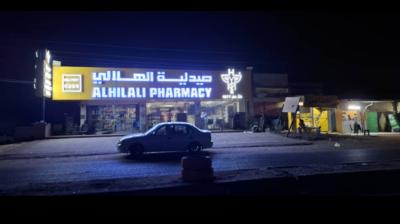Restructuring SADC - progress and problems
How to cite this publication:
Jan Isaksen (2002). Restructuring SADC - progress and problems. Bergen: Chr. Michelsen Institute (CMI Report R 2002:15)
This study was commissioned by the Norwegian Agency for Development Co-operation (NORAD). It is a follow up to "Assessing the Restructuring of SADC - Positions, Policies and Progress. Chr Michelsen Institute (CMI Report R2001:6). The study examines the status of SADC's restructuring exercise as at mid-2002, reviews SADC's relation to continental initiatives, SADC's engagement in the Zimbabwe crisis and finally the role of non-state actors in regional co-operation and integration. Support for the restructuring process among members has not weakened. Whether problems of support may arise in the future will partly depend on the success of restructuring and progress on substance. On several counts there has, however, been slippage compared to the quite optimistic timetable set in early 2001. Despite staff shortages and administrative turbulence caused by the restructuring exercise, over the last year SADC moved perceptibly forward on substantive issues. The Organ for Politics, Peace and Stability, has made progress in establishing procedures and mechanisms for intervention. However, the Organ still lacks operative policies, financial resources and operational capacity. It is difficult to escape the conclusion that SADC has not sufficiently pursued the issue of governance and human rights since it began to address the Zimbabwe situation. SADC will both influence and be influenced by NEPAD. SADC would take NEPAD into account during the ongoing restructuring. There will be a need for regional/continental coordination mechanisms if and when the NEPAD infrastructure programme, based on regional projects, takes off. Non-state actors / NGOs may not be involved in regional matters as much as they could be because they are generally weak and unaware of the change in SADC's policy towards NGOs. Most of them have no regional links and concentrate their activities at the national level. But may potentially play a significant role in guarding the maintenance of SADC norms and standards. Regarding Norwegian support to SADC, the report recommends that NORAD consider the possibility of a "slush fund". Under such an approach, SADC would indicate total unspecified needs within the broad area of institutional restructuring for a period of 2-3 years. It is also recommended that in the near term Norway should consider sectoral aspects of its longer-term support to SADC; that substantial support to SADC will require that Norwegian aid management to be stepped up far beyond present capacity and that Norway seek an active role in the core ICP group formed after the mini donor meeting in February 2002.


![Engasjert antropologi i turbulente tider [Engaged Anthropology in Turbulent Times].](http://www.cmi.no/img/400/19475-Screenshot-2025-12-25-at-180604.png)
![Å holde flammen tent: Engasjert antropologi i mørke tider [Tending the flame: Engaged anthropology in dark times]](http://www.cmi.no/img/400/19474-Screenshot-2025-12-25-at-175845.png)
![Ti år med flyktningkriser og folkerettsbrudd i Europa (2015–2025): Kunne EU og Norge ha svart annerledes? [A Decade of Refugee Crises and Violations of International Law in Europe (2015-2025) – Could the EU and Norway Have Responded Differently?]](http://www.cmi.no/img/400/19473-Screenshot-2025-12-25-at-173706.png)



